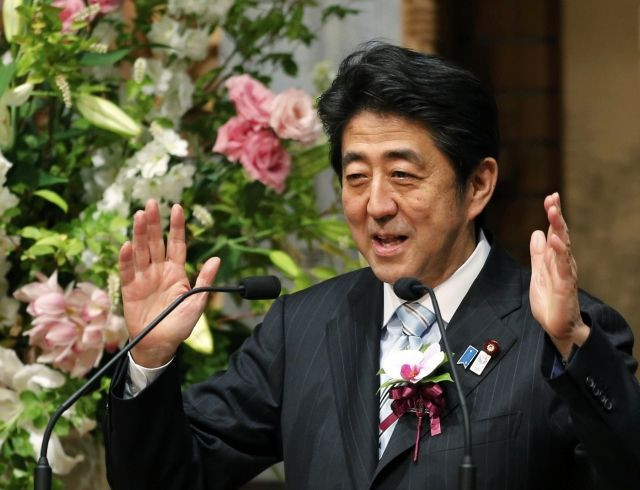Japanese Prime Minister Shinzo Abe Embarks On Maiden Myanmar Trip To Deepen Economic Ties

Japanese Prime Minister Shinzo Abe will visit Myanmar on Friday -- the first state visit by a Japanese leader in 36 years to the country, which is emerging out of the shadows of a long military rule.
Aiming to counterbalance the economic impact of Japan’s strained ties with China over a set of disputed islands in the East China Sea, Abe's new administration has been reaching out to other Asian neighbors, including Myanmar.
Abe is accompanied by a delegation of business leaders and will arrive in Yangon on Friday evening for a three-day visit, AP reported. He will meet President Thein Sein on Sunday in Naypyitaw, the report added.
He will also meet opposition leader Aung San Suu Kyi, who met him last month on her first visit to Japan in 27 years.
“Japan will cooperate in Myanmar's reforms with both public- and private-sector assistance,” Abe told reporters before departure, according to Kyodo News.
Japan’s Deputy Prime Minister Taro Aso, who is also the country's finance minister, chose Myanmar for his maiden foreign visit only a week after taking up his job in January, underscoring the country's importance to Japanese interests in the region.
Abe is expected to extend ¥40 billion ($393 million) in new aid to Myanmar on this visit, according to the Wall Street Journal. In 2012, Japan's previous government had written off more than $3.7 billion of debt owed by Myanmar, a deal honored by Abe’s government.
However, Japanese investments in the country, worth $270 million as of February, lag far behind that of China's, which has committed $14.2 billion to Myanmar, according to AP.
Fresh economic ties between the two nations will set the stage for Japanese firms to gain privileged access to Myanmar as Western governments also seek to penetrate the Myanmar market, which is now emerging out of years of economic sanctions.
At least 35 Japanese investment projects are currently active in Myanmar, among which, Thilawa, a $12.6 billion, 2,400-hectare special economic zone, is considered to be of great significance to Japan-Myanmar relations.
Mitsubishi Corp., Marubeni Corp. and Sumitomo Corp. are the Japanese companies investing in the joint venture to build the industrial park.
Myanmar officials are optimistic that Thilawa will bring employment opportunities to the country, which needs to quickly create jobs to help stabilize the ongoing social and economic unrest following the end of military rule.
© Copyright IBTimes 2025. All rights reserved.






















